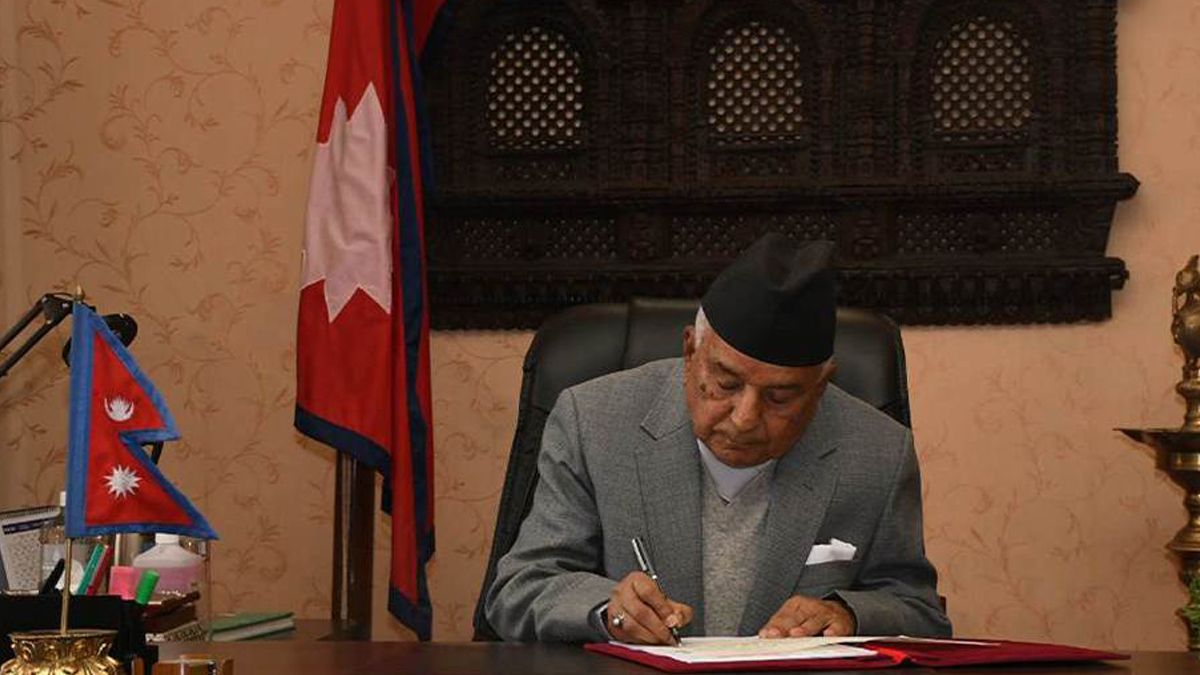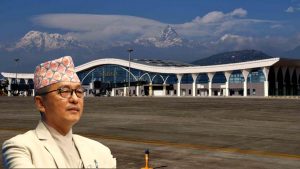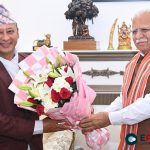
President Paudel brings a ray of new hope for Nepal-India relations
Veteran leader of the Nepali Congress party Ram Chandra Paudel has been elected the new president of Nepal. Paudel had a convincing victory securing 33,802 votes against his rival Subash Chandra Nembang from the Communist Party of Nepal – Unified Marxist Leninist (CPN-UML) who could manage only 15, 518 votes.
It is the third presidential election in the Himalayan Country of Nepal since the country became a republic in 2008.
The president of Nepal is elected by an Electoral College comprising two houses of federal parliament and seven provincial legislators. Mr. Shaligram, the spokesperson of the Election Commission informed that the total number of voters for the election of the President is 882, consisting of 332 Members of the Parliament and 550 members of the Provincial Assemblies of the seven provinces. Poudel, a common candidate of eight-party alliance including Nepali Congress and the CPN (Maoist Center) in support, received the vote of 214 lawmakers of parliament and 352 provincial assembly members and declared victorious.
This election was preceded by political turbulence in Nepal, leading to a dramatic change in coalitions in the present Pushpa Kumar Dahal Prachanda’s government. The Nepalese Parliamentary elections held in November 2022 threw a hung Parliament. The Nepali Congress led by former PM Sher Bahadur Deuba formed the largest party with 89 seats.
Prachanda’s Communist Party of Nepal (Maoist Centre) or CPN–MC won 38 seats, whereas K P Sharma Oli’s Communist Party of Nepal–Unified Marxist Leninist (CPN– UML) won 78 seats in the elections.
Due to negotiations that could not work out between Deuba and Prachanda, Prachanda and Oli decided to form the government on a rotation basis with the first of the term being led by Prachanda.
It is important to note that although both Prachanda and Oli are near to China, yet they were not on good terms with each other. They have been rivals at loggerheads so much so that Oli while Prime Minister alleged that Prachanda, backed by India, dislodged him from power in his previous term. The two rivals came together not because of ideology but only on the ground of a mutual power-sharing agreement and opportunism.
As was anticipated the fragile coalition was abruptly ended as Prachanda decided to go against the candidate of its alliance partner CPN-UML and announced open support to Paudel instead of Nembang. This led the Rashtriya Prajatantra Party to pull out its support from the government with the resignation of three ministers, including Deputy Prime Minister Rajendra Lingden.
This was followed by Oli’s party CPN-UML leaving the coalition. Prachanda’s government, however, was saved by the new political calculus as the recent move paved the way for a new pact between the Nepali Congress and Prachanda-led CPN (MC), which are the largest and third-largest parties, respectively.
The election of Ram Chandra Paudel as the new president of Nepal brings a new ray of hope for India and Nepal relations. Paudel is seen as a moderate leader with better ties with India. Importantly, he comes from the Nepali Congress party with which India has relatively better relations, especially under the previous premier Sher Bahadur Deuba.
Notably, the relationship touched a watershed mark with Indian PM Narendra Modi visiting Lumbini, the birthplace of Gautama Buddha, on Buddha Purnima last year.
This overture by the Indian Head of Government not only conveyed the special respect and regard for shared culture of the two neighbours but also signified the importance and emphasis being given to mending the ties at the highest levels. With this visit also came the joint India – Nepal plan to include Lumbini in the Buddhist circuit being promoted by Indian tour operators. This will be in addition to the project to build the Ramayan Circuit that already links various sites of the two neighbouring countries. The laying of the foundation stone for an Indian monastery by the Indian PM helped further bolsters the relations.
Not just on the front of soft power ties, but the infrastructure and other collaborations also saw the light of the day. Nepal offered India to take up the languishing West Seti hydropower project of Nepal. In the field of education, IIT Madras and Kathmandu University collaborated on offering a joint degree programme while the Indian Council of Cultural Relations (ICCR) and Lumbini Buddhist University decided to establish a Dr Ambedkar Chair for Buddhist Studies.
India has also provided military assistance and training to the Nepal Army and a major source of investment destination and employment opportunities for Nepalese. It has been an important source of development assistance to Nepal relentlessly. It has extended several lines of credit to Nepal over the years and provided grants for various development projects and support for various infrastructure projects as well, such as roads, bridges, hydropower plants, health facilities, and educational institutions and improvement of human development indicators, and support Nepal during adversities such as during 2015 earthquake.
Nepal is still struggling to recover from the economic troubles brought on by COVID-19, which led to a drop in the number of foreign tourists coming to climb the country’s mountain peaks and hike its trails. Reviving tourism is necessary to bolster Nepal’s economy.
Although a more moderate Nepali Congress leader Paudel as the President of Nepal will be preferable for India, however, India never interferes in the internal affairs of another. sovereign nation and maintains this policy steadfastly. India’s first priority remains a politically stable Nepal duly respecting the decision of Nepal’s citizens and would look for enhanced developmental partnership and cooperation with the political dispensation of any hue and colour.
With Paudel’s election to the post of President and the associated change in the political power elite in Nepal, the current arrangement seems better placed in strengthening the India-Nepal relations even further. It should be noted that India and Nepal cooperate closely on issues of mutual interest and are committed to deepening their partnership in the spirit of Sabka saath, Sabka vikas (Collective efforts, Inclusive growth), Neighbourhood first policy and the cardinal principle of ancient India that still prevails ‘Vasudhaiva Kutumbakam.’
- Nepal Firmly Opposes Terrorism in All Forms: Foreign Minister Dr. Arzu Rana Deuba
- Protests Erupt Outside Pakistan Embassy in Kathmandu Following Terror Attack in Kashmir
- Chinese Export Factories Hit Pause Amid Tariff War Fallout, Signaling Deeper Economic Woes
- Weather Update: Partly Cloudy Skies in Hilly Regions, Heat Wave Alert for Lowlands













Comments